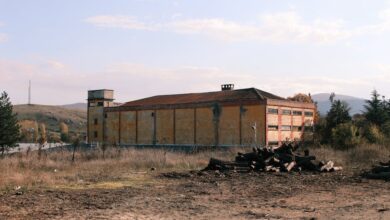The Rodgers Era, Part Two: A Whirlwind of Unmet Expectations?

The news hit like a thunderclap across Scottish football. Just when we thought we had the rhythm of the season, a seismic shift at one of the country’s biggest clubs has thrown everything into a fascinating disarray. Brendan Rodgers, the man who brought unprecedented domestic success in his first spell and returned amidst a wave of optimism, has resigned as Celtic manager. And in a move that feels both nostalgic and strategically astute, legendary figure Martin O’Neill is back, albeit as interim boss.
Anyone who follows the beautiful game knows that football is rarely boring, but this development has truly upped the ante. With Celtic currently sitting eight points behind leaders Hearts in the Scottish Premiership, the pressure has been mounting, and this turn of events speaks volumes about the cut-throat nature of top-tier management. Let’s dive into what this means for Celtic, their title aspirations, and the landscape of Scottish football.
The Rodgers Era, Part Two: A Whirlwind of Unmet Expectations?
When Brendan Rodgers returned to Celtic Park, there was a palpable buzz. His first stint had delivered an historic ‘Invincible Treble’ and numerous other trophies, etching his name into the club’s storied history. Fans dreamed of a similar era of dominance, a continuation of their stranglehold on the domestic scene. The initial signs were promising, but as the season wore on, a narrative of inconsistency began to emerge.
The eight-point deficit to Hearts isn’t just a number; it represents a series of dropped points in games many expected Celtic to win comfortably. Performances, at times, lacked the usual intensity and fluency we’ve come to associate with a Rodgers-led side. Questions arose about squad depth, tactical choices, and the general mood around the training ground. For a club like Celtic, where success isn’t just hoped for but expected as a birthright, any prolonged period of underperformance will always lead to immense pressure on the manager.
A Decision Born of Pressure, Performance, or Personal Preference?
The exact reasons behind Rodgers’ resignation are, of course, a topic of much speculation. Was it a mutual agreement, a decision made for the good of the club? Or did the weight of the eight-point gap and the perceived stagnation of the team become too much to bear? Managing Celtic, particularly in a title race where rivals are showing genuine strength, is an all-consuming role. The scrutiny from fans, media, and pundits is relentless.
Regardless of the specific catalyst, his departure signifies a crucial moment. It suggests that the current trajectory wasn’t sustainable or, perhaps, that a fresh impetus was needed to reignite the title charge. For a manager of Rodgers’ calibre, walking away mid-season is never an easy choice, hinting at a deeply considered decision driven by complex factors.
The Return of a Legend: Martin O’Neill Steps into the Breach
In football, few names evoke the kind of immediate respect and adoration as Martin O’Neill does among the Celtic faithful. His first tenure, from 2000 to 2005, was nothing short of iconic. He broke Rangers’ dominance, won multiple trophies, and led Celtic to the UEFA Cup final in 2003, a journey that captivated a nation. He built a team of warriors and entertainers, and his return, even as an interim boss, is a powerful emotional play.
Bringing O’Neill back is a fascinating move by the Celtic board. It’s an immediate injection of experience, gravitas, and a deep understanding of what it means to manage the club. More than that, it’s a direct appeal to the heart of the fanbase, a move designed to galvanize support and steady the ship during a turbulent period. Fans will remember the thunderous roars of a packed Celtic Park under his stewardship, and the hope is he can rekindle that fire.
The Immediate Challenge: Closing the Gap, Restoring Belief
O’Neill’s remit, as an interim boss, is clear yet incredibly demanding: stabilize the team, re-establish winning habits, and mount a serious challenge for the Scottish Premiership title. Eight points is a significant gap, especially with Hearts looking strong, but in football, nothing is impossible. His arrival will undoubtedly lift the dressing room, offering a new voice and a fresh perspective.
His legendary status will command instant respect from the players, and his pragmatic, often direct approach could be exactly what’s needed to cut through any existing anxieties. The immediate focus will be on tightening up performances, instilling confidence, and getting back to the relentless winning form that Celtic fans demand. It’s a test of his managerial acumen and his enduring connection with the club.
What Lies Ahead for Celtic? Navigating the Uncertainty
While Martin O’Neill’s return provides an immediate sense of direction, the larger questions about Celtic’s future remain. An interim appointment suggests a longer-term search is already underway for Brendan Rodgers’ permanent successor. What kind of manager will the club target? Someone with a similar attacking philosophy, or a more results-driven pragmatist?
The impact of this managerial change on the title race is also profound. Hearts, currently enjoying their time at the top, will see this as an opportunity to consolidate their position, though they too will be wary of the ‘new manager bounce’ O’Neill might inspire. The psychological shifts in these situations can be immense. For Celtic, it’s about resilience, about tapping into their rich history and tradition to overcome adversity.
This period of transition, while unsettling, also offers a chance for renewal. O’Neill’s experience could prove invaluable in guiding the club through the remainder of the season, potentially laying the groundwork for whoever takes the reins permanently. It’s a testament to the unpredictable drama of football, where fortunes can change in an instant, and legends can make a surprising return.
The departure of Brendan Rodgers and the return of Martin O’Neill marks a truly defining moment in Celtic’s season. It’s a reminder that in football, stability is a luxury, and change is often the only constant. For the fans, it’s an emotional rollercoaster, but one thing is for certain: the Scottish Premiership just got a whole lot more interesting. All eyes will be on Celtic Park as a familiar face attempts to steer the ship back towards glory.





